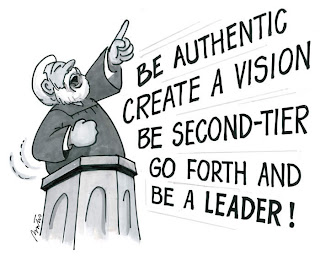Wired has an interesting article this month called 'Free! Why $0.00 is the Future of Business'. It describes how the internet in particular - thanks to essentially free distribution - has changed the thinking around some pricing and business models. A simple example of these pricing models changing - the demise of subscriptions and fees for on-line versions of newspapers (remember how some papers like the LA Times, New York Times and Wall Street Journal made their on-line versions inaccessible?).
(Note: I have to throw this in. While I'm not nearly as clever as Wired, I actually wrote a post on the race for free called 'Monetizing Data - The Race for Free back in December 2006'. $0.00 pricing IS an intriguing twist/opportunity on some business models.)
Reading the Wired article got me thinking. It's easy to see how advertising has supplanted pricing for some on-line services. But does the race for free, extend beyond the internet? Could it be extended?
I do a lot of work for a Canadian hospital. Hospitals in Canada mostly don't charge for their core services - there isn't a price list. Revenue/funding comes primarily from the government.
Over the past three years, management at this hospital has done their job reducing the fat from the organization. However, demand for their services continues to grow well in excess of their funding. In fact, funding doesn't even match inflation.
I got to wondering if Wired's theory might be applied to the hospital, eg, give hospital services away free to patients (what hospitals already do) and make up the revenue shortfall selling other products/services to other 'customers'.
Hospitals already charge their primary customers for some ancillary services (parking is a big one) but this isn't what I mean. In the free-services/other revenue model the hospital would be selling access to what it has - its customer base; large, skilled workforce, facilities and political clout - to anyone with a need for access to those things.
What about advertising? Advertising is a primary revenue source on the web - give stuff away for free, make revenue from advertisers. Who would advertise in a hospital? Seems to me anyone might want to although some products and services might be inappropriate.
This actually seems like an untapped opportunity for the hospital. It might not be huge - but the number of hospital visitors every year is large - I wonder what the revenue potential might be if every corner of the emergency department was covered in advertising, or the neo-natal unit was sponsored by J&J? What if every bed was like a NASCAR racer? Big logos and stickers all over them?
Who else might want access to what the hospital has? How about medical universities looking for a place to toss their students into hospital reality. What's that worth? The truth is, the hospital has a relationship with a teaching university - but the funding relationship is set by the government - at a rate well below the cost of putting up with learner doctor. It could work. It just doesn't.
Who else? The hospital customer base is probably a good testing environment for everything from new drugs to diapers. Maybe the hospital could renegotiate a bunch of it's supplier costs and turn them into testing revenues. I'm betting not - no question these companies already have their test facilities - but who knows - maybe there's a negotiation opportunity?
Politicians need access to what the hospitals offer. In fact, some of the best new funding comes at election time when politicians and parties want to sooth or cajole voters into their point of view. Maybe the Hospital could develop its political muscle more as a way of attracting even more funding. This is a certain opportunity.
I know I'm missing something here. With a little creativity there's got to be more opportunities. I'm interested in any thoughts from anyone on how else the hospital can give away its services and be rich like those internet companies. Ideas?
By Jim Crocker, past CEO and now Chair of Boardroom Metrics. Jim works with private and not-for-profit clients on corporate strategy and governance. His partner Karen McElroy leads an international business writing team that helps clients write and win RFP's.
Subscribe to:
Post Comments (Atom)
Leadership Smeadership
Okay. I know it’s a settings thing. Sometime, a long, long time ago – probably when leadership was being invented – I must have indicat...

-
In 2012 I've attended two HR conferences. They couldn't have been more different. The 2nd Annual Talent Management Development C...
-
Last night I got to have dinner with a group of 20 CIO’s. My role was to help bring the CEO perspective to them on what they do and h...
-
Okay. I know it’s a settings thing. Sometime, a long, long time ago – probably when leadership was being invented – I must have indicat...



1 comment:
I'm with ya - healthcare worldwide continues to struggle in search of a sustainable model.
I recntly put together a blog which takes the first step at trying to re-jig the US system. It's not prescriptive (yet) but the first step is to identify the true root causes of our current collective pain.
The decision-making model is skewed in my opinion. Politicians are not doctors. Nor are insurers. One key is to decentralize control down to a partnership of true experts (the doctor and the patient).
http://nik-o-laus.blogspot.com/2008/05/if-we-really-wanted-to-fix-healthcare.html
Post a Comment